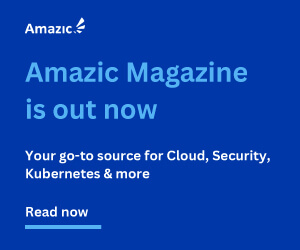One of the most pressing challenges organizations face today is managing policy and compliance. Regulated entities are under greater scrutiny than ever, and new regulations are being adopted faster than any business can keep up. The world has become a global marketplace, and companies operating in this environment must operate as cost-effectively and risk-proficiently as possible.
One way to do this is using a policy management solution like Rego. Let’s look at why you should consider using Rego, how it can help you, and how you can use it to create unified policies.
What is Rego?
Rego is a policy management platform that allows organizations to create and manage policies that govern employees’ day-to-day activities. Rego’s policy engine pulls in company policies and uses artificial intelligence to create a single, comprehensive policy that governs the employee’s work. Policies are created by a team of policy experts, who can also edit policies on the fly. An automated policy management solution can help an organization create policies that govern employees’ activities more effectively and efficiently.
A policy management solution can simplify the process of enforcing policies. You can assign policy levels of severity, which can help IT operations management know when to escalate an incident. An automated policy management solution can reduce risk by automating the enforcement of policies. If an employee is out of policy compliance, that employee’s actions can be blocked until the policy team can correct the situation.
Understanding Open Policy Agent (OPA)
Open Policy Agent (OPA) is a powerful, open-source policy engine that enables developers to easily create and manage policies for their applications. OPA provides a simple yet powerful way to declaratively specify and enforce the policy. OPA is highly extensible and can be used to implement any policy, from simple authorization checks to complex orchestration decisions. It has a rich set of built-in policy capabilities, including support for identity and role-based access control, service composition, and rate limiting. It was developed by the Open Policy Foundation, a non-profit organization that helps to maintain the open policy agent (OPA) code base and develop the platform.
What are the Benefits of Using Rego?
- Easy to use: Rego is a policy management solution designed to be easy to use, even for non-IT staff members. Its policy engine is accessible by non-IT staff members and policy experts, which helps ensure that all policies are clear and understandable.
- Scalable: Rego’s policy engine is scalable and can be used to manage hundreds of thousands of policies. This means that Rego has the flexibility to scale with your business, allowing you to be flexible as you manage your policies.
- Secure: Rego’s policy engine is built on the most advanced artificial intelligence and machine learning technologies, which makes it faster than legacy policy management solutions. Rego’s policy engine is also HIPAA-compliant, making it compliant and secure for use with healthcare organizations.
- Comprehensive: Rego is designed to be comprehensive and covers policy management, compliance, and operations management. In addition to helping to manage policies, it also helps to manage compliance and maintain an auditable environment.
How to Use Rego?
The Rego policy engine is designed to be intuitive and easy to use. To get started, create an account and log in to your portal. You can create policies and assign them to specific users or groups. You can assign policies to particular activities, such as email, web browsing, or other tasks. When assigning policies, you can also edit the policies assigned to each activity and set the level of risk for each one.

Once policies have been assigned and edited, they can be published to the Rego policy management solution. You can use the Rego console to create workflows and block users out of compliance to manage your policy enforcement. You can create multiple workflows to enforce different policies and block users based on their level of risk.
To help you manage policy compliance, you can create dashboards showing each user’s status and actions over time. The Rego policy management solution can also be integrated with other partners and tools, allowing you to expand its functionality. Partner integrations include Workday, Salesforce, Google, Gmail, Dropbox, Microsoft, Slack, and more.
Features of Rego
- Search: A Rego policy engine-powered search allows you to easily find the policies that you need.
- Policy Management: Create policies that govern employee activities, manage and enforce policies, and maintain compliance with policies.
- Compliance: Use the Rego policy engine to check compliance, manage resource access, and audit activity.
- Audit: Audit and report on activity, create reports to find trends and anomalies, and manage risk.
- Assignments: Assign activities, such as emails, to users, such as an email administrator or a manager.
- Visibility: View the status of each user, including the actions they’ve taken, their risk level, and more.
- Auditing: Create and manage auditing policies to help maintain compliance and audit activity.
- Access Control: Control access to resources, such as email accounts, with access control policies.
- Use admin controls to manage settings, such as blocking access to the internet, on each user’s computer.
What rules can you enforce with Rego?
Rego is a great tool for managing your project’s scope. It can help you to keep track of all the requirements and to ensure that everyone working on the project understands what they are supposed to be doing. It can also be used to enforce technical rules, such as requiring that all code be written in a particular programming language. Finally, Rego can be used to enforce project management rules, such as ensuring that all tasks are assigned to the right people.
Conclusion
Managing policies and enforcing them consistently across the organization is essential for risk-based security. Rego’s policy engine can automatically detect when an activity is out of policy compliance, allowing you to quickly determine whether the activity is actually a policy breach or an incidental violation. With the ability to automatically detect when activities are out of policy compliance, you can quickly determine whether a user has actually violated a policy or accidentally violated a policy. Policy violations can be automatically blocked, allowing you to quickly determine whether to escalate the incident.
If you have questions related to this topic, feel free to book a meeting with one of our solutions experts, mail to sales@amazic.com.



